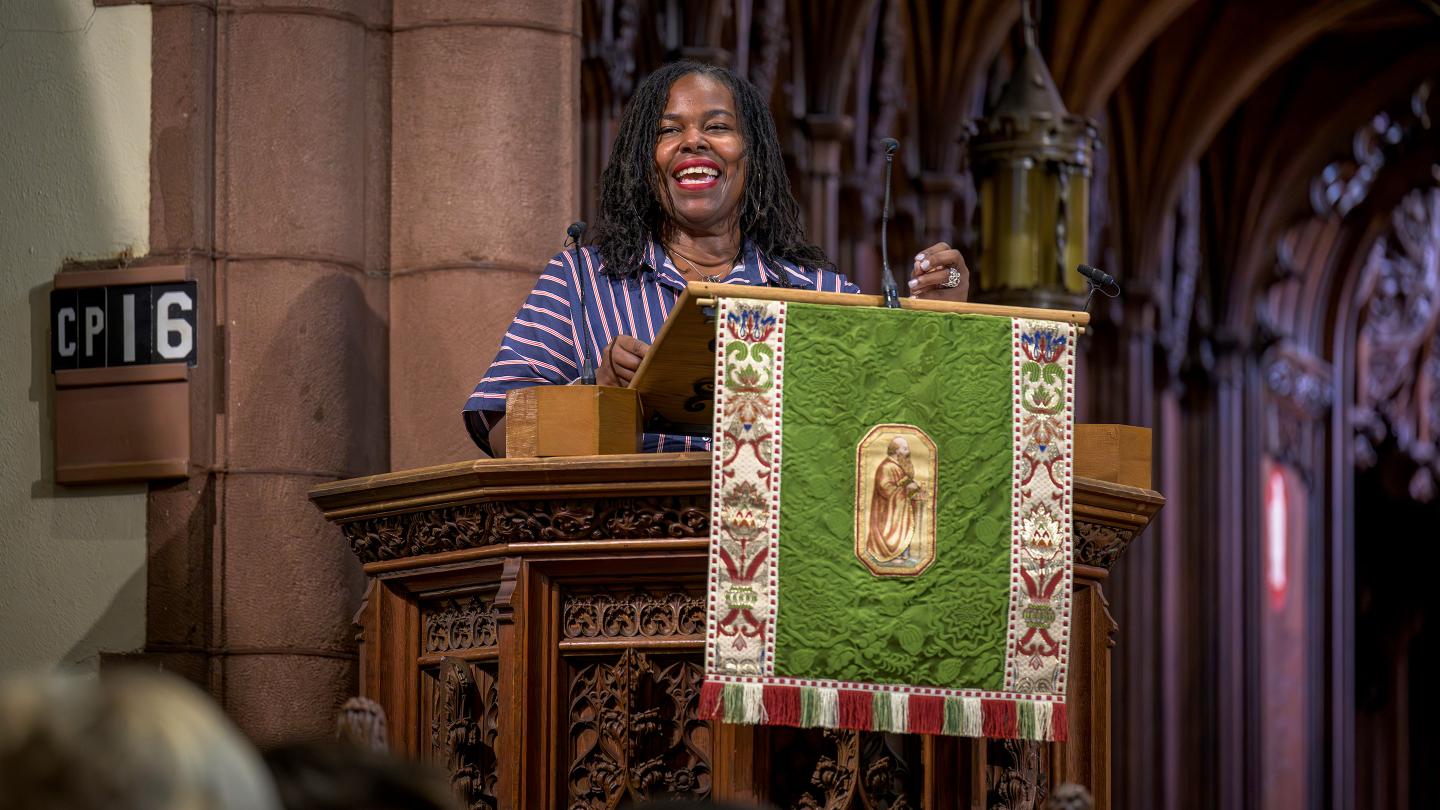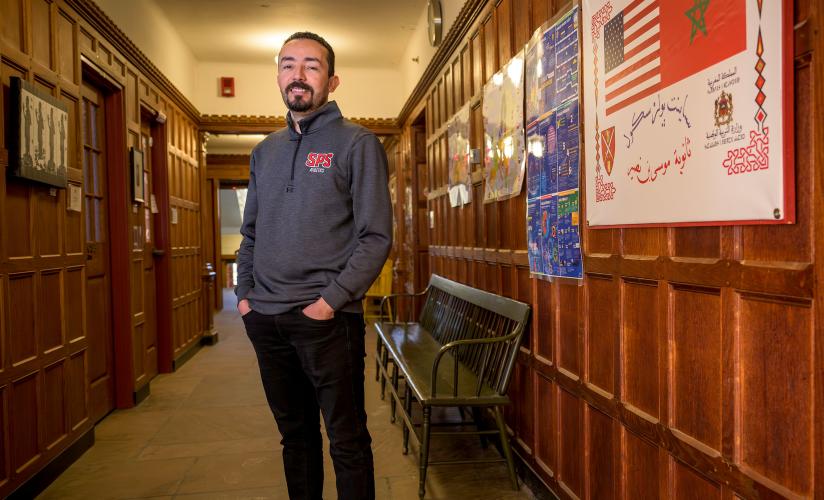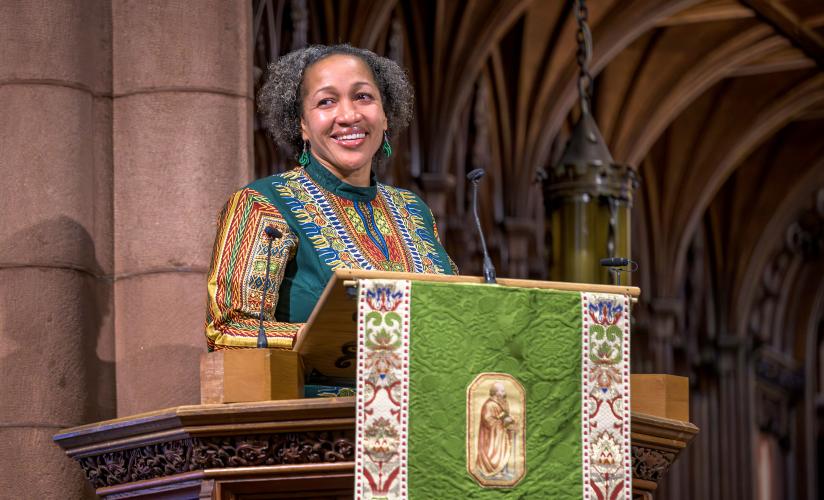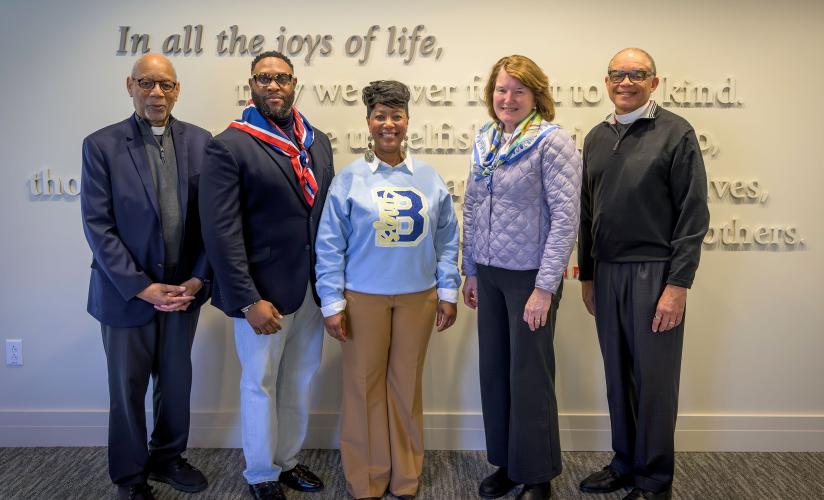

New York Times bestselling author Renée Watson offers inspiration and insights about the power of storytelling.
BY KATE DUNLOP
Over the summer, as they prepared to begin at St. Paul’s School, Third Form students were asked to read “Piecing Me Together,” which explores a teen protagonist’s question about whether “… there’s ever a way for a girl like me to feel whole.” The young adult novel by the #1 New York Times bestselling author Renée Watson received a Coretta Scott King Award and a Newbery Honor and was described by Publishers Weekly as offering “compelling reflections on the complexities of race and gender, class and privilege, and fear and courage.”
On Oct. 15 and 16, St. Paul’s School welcomed Watson to the grounds for a visit that included a reading in Ohrstrom Library, a chapel talk, a visit to Humanities Teacher Beth Little’s class, and a session with the Third Formers who had contributed questions for a Q&A with Little that was full of philosophy, writing advice and appreciation for teenagers.
In her chapel remarks, Watson posed a different question than the kind teens often hear.
“I don’t want you to think about what you will do one day or who you will be years from now. Right now, I want to ask you, who are you now? … How are you showing up for yourselves? How are you showing up for each other? Because right now, in very small ways, you can change … your world, your neighborhood, your community, your family. …You just need to show up one small action at a time,” she said. “…We all have a voice, and we can all use it to change the big world. Yes, but also your personal world. How will you use your voice to do the radical work of love at this school, in your family, with your friends? How will you use your voice?
When it comes to creating a narrative voice that moves a plot along, aspiring writer Monika Principal ’26 was surprised to hear Watson say that “the best writers borrow” instead of “creating new things out of thin air” but came to realize the necessity of using imagination to build on what they’ve borrowed to tell a story.
“I’m grateful to have met Ms. Watson … [and] admire the way she makes her stories and poems feel real. She has a way with words that truly pull you into the literary universe of her books,” Principal says. “Hearing about her writing process certainly changed the way I view the book. … It reminded me a lot of myself, and knowing this deepens the sentimental value of her books for me.”
Little, who organized the author’s visit, says her hope for the students was to gain a perspective outside of their own. “I wanted them to feel inspired about living in this world, and to have some new insights about what it means to be a writer, and they a hundred percent got that,” she says. “So many students stopped Renée on the path throughout the day to thank her for her words in chapel. And the best part, to me, was the small, quiet moments with students where they were able to ask her a question or gain her perspective on some aspect of themselves, their work or their own identity. I’m so appreciative of how much she gave us over her time here.”
Read an excerpt from Watson’s Q&A with Little and the Third Form »



